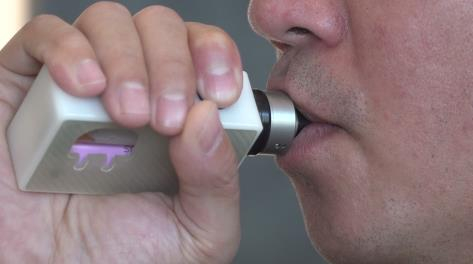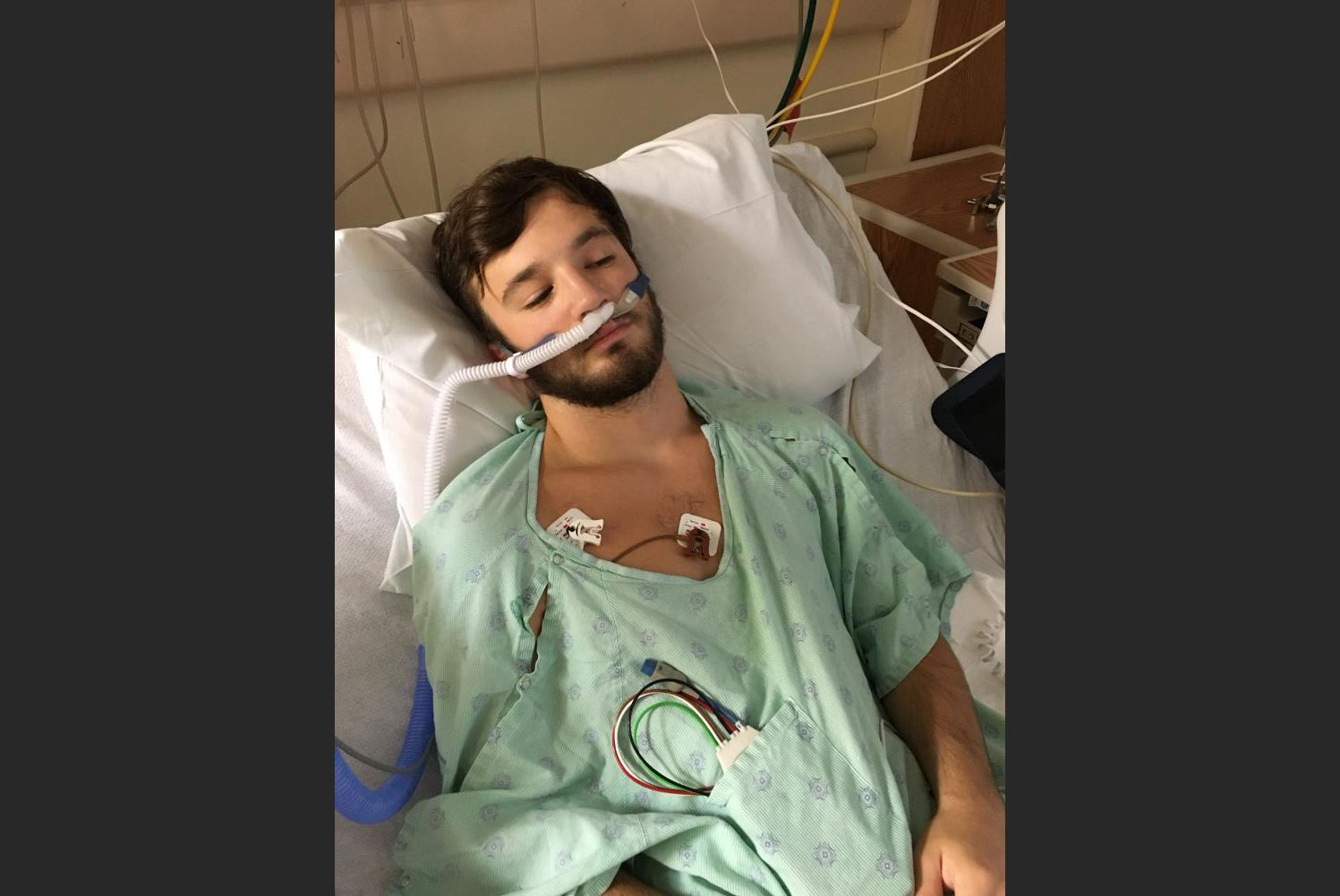
E-cigarettes is a technology promoted as being less harmful than tobacco. /CGTN Photo
E-cigarettes is a technology promoted as being less harmful than tobacco. /CGTN Photo
The number of people becoming ill while using electronic cigarettes in the United States continues to rise. An outbreak of lung disease has sickened more than 500 people and claimed the lives of at least eight people, leading to a backlash against vaping.
India has banned all e-cigarettes while two U.S. states, Michigan and New York, have prohibited flavored vape products.
National and local leaders, from U.S. President Donald Trump to Chicago's Mayor Lori Lightfoot, are ready to step in. "The dangers are expressing themselves literally every day. We must act and we will," said Lightfoot.

Adam Hergenreder in an emergency room after becoming ill after vaping. /CGTN Photo
Adam Hergenreder in an emergency room after becoming ill after vaping. /CGTN Photo
Lightfoot, along with other politicians are among those calling for a ban on flavored e-cigarettes, calling them a gateway for children to get addicted to nicotine.
That view is backed by Ana Pavlivich, a principal at Chicago's Amundsen High School. "The flavors are what makes students think this is an innocuous product, that it is just something that tastes good. The students often tell us there isn't anything to this, it really is just oil and a flavor. It is like drinking a Kool-Aid, when we know that it is not."
The global e-cigarette industry is estimated to be worth almost 20 billion U.S. dollars. But is the backlash justified against a technology promoted as being less harmful than tobacco? A recent UK government study estimates that e-cigarettes are around 95 percent less harmful than tobacco.
Larry Eng opened Level Vape in Chicago five years ago. He fears former cigarette smokers will now return to their old habits. "With all the news that came out, we have less new people coming in. Unfortunately, it has scared a lot of people, so a lot of people have probably just continued to just smoke cigarettes because at least they know the outcome of that. Because they are misinformed as to what the real reason is for people getting sick."

Larry Eng owns a vape store in Chicago and fears users will return to smoking cigarettes. /CGTN Photo
Larry Eng owns a vape store in Chicago and fears users will return to smoking cigarettes. /CGTN Photo
Many of the illnesses across the U.S. have been linked to those who use e-cigarettes to vape THC, the active ingredient in cannabis. Others have admitted to using counterfeit vaping products.
Jonathan Klein at the University of Illinois at Chicago believes the risk to all vapers remains. "From a medical and public health perspective, vaping has become an epidemic. And we have seen the rates go from three percent a year, up to now the latest surveys in secondary schools, high schools, are showing rates of 25 percent to 30 percent. They are people who are never smokers, becoming addicted to these products as their first entry to nicotine."
The vaping industry is under pressure and there appears to be a growing chorus of people lining up against it.